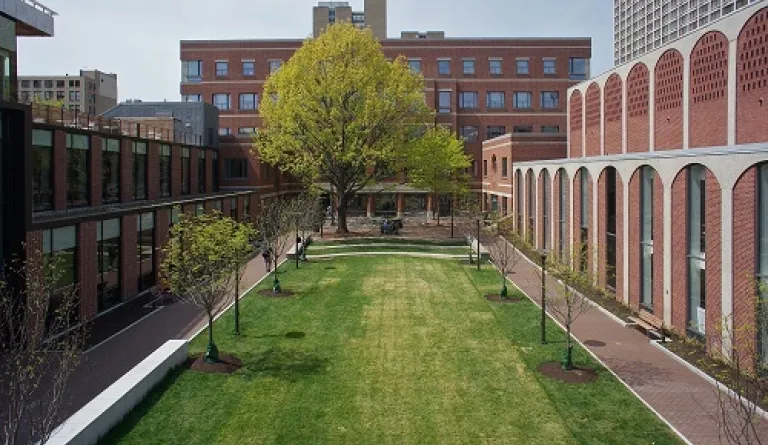IAALS' Zack DeMeola Talks Foundations for Practice and the Future of Law on Law 2030 Podcast

On February 27–28, the University of Pennsylvania Law School’s Future of the Profession Initiative hosted Law 2030: A Global Conversation About the Future of the Profession. The conference was an “interactive, inspirational, and educational conversation about how real change happens, why lawyers struggle to change, and how legal professionals can improve client service and learn from innovators in other fields.”
IAALS Manager Zack DeMeola, who leads our projects related to legal education and the profession, sat down for a conversation with Associate Dean Eleanor Barrett as part of the Law 2030 podcast. Topics included learning outcomes in law schools, predictions for the legal profession’s future, and how it all ties together with IAALS’ landmark Foundations for Practice project.
The conversation opened with DeMeola’s predictions for the legal profession in 2030: new and different regulation for the delivery of legal services leading to a broader array of affordable legal services accessible to the public. States such as California, Arizona, and Utah are already exploring this future—and IAALS is charting that future with our Unlocking Legal Regulation project. With IAALS’ help, “states are going to learn what works and what doesn’t, and how to address [] two critical problems”: access to justice and sustainable legal practices. According to DeMeola, these changes are being brought about by an unprecedented crisis in access to legal services and the rapid pace of technological innovation:
“Technology is changing the world all around the legal profession, but somehow the legal profession hasn’t caught up.”
Naturally, all of these changes in the legal profession lend themselves to changes in legal education, too. Barrett and DeMeola discussed more recent shifts in the traditional legal education model, such as the implementation of learning outcomes. “Your last point there suggests that the [legal education] outcomes should be somewhat tied to skills that the profession requires—and that seems logical,” Barrett said. “And IAALS has been at the very forefront of trying to more precisely identify those skills through the Foundations for Practice project.”
The Foundations for Practice survey garnered more than 24,000 valid responses from lawyers in all 50 states. When asked about any surprising findings, DeMeola related how, out of the three categories of foundations that the survey assessed for, characteristics—such as attention to detail, a strong work ethic, and resilience—far outweighed both professional competencies and legal skills as being necessary for successful practice right out of law school. And, to the surprise of the research team, the results were consistent across demographics.
“This emphasis on characteristics is very useful. We think this should be informing curriculum because the profession believes that these are the sorts of bedrock abilities that allow a student, later on in their career, to be successful.”
As far as how law schools can effectively incorporate these practice-necessary characteristics into their curriculum, DeMeola stressed the need for faculty to come together, to both break down the definitions of these characteristics—define what it means, for example, to have integrity, common sense, timeliness—as well as to define how to effectively measure them in a classroom.
And law schools aren’t the only ones interested in the findings from Foundations for Practice. Employers, too, have been eager to figure out the implications and applications of these foundations for their hiring process; one Denver-based law firm, Wheeler Trigg O’Donnell, worked with IAALS to incorporate the foundations they need in their practice into behavioral interview questions. The firm was able to both hone in on which foundations were essential to success in their firm, as well as interview prospective candidates with those foundations in mind.
Phase III of Foundations for Practice is in development, with the goal of firmly embedding the critical set of legal skills, professional competencies, and personal characteristics new lawyers need into legal education outcomes nationwide, as well as employer hiring practices. IAALS will also continue to explore how changes in regulating the delivery of legal services presents law schools with opportunities to shape a better future, and how our Unlocking Legal Regulation project overlaps with Foundations for Practice.
The podcast episode can be found here.
